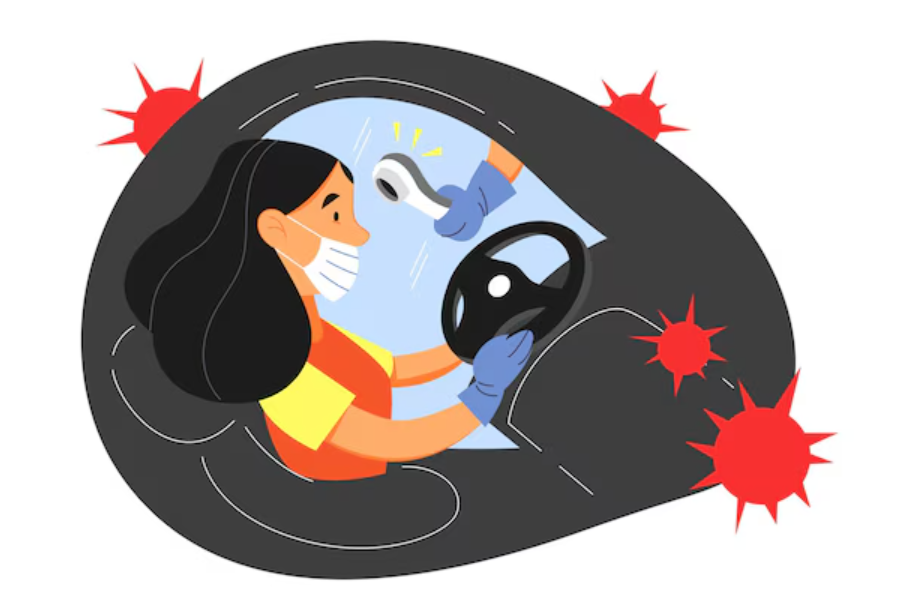-1731494814310.webp)
Dealing with motion sickness can be a challenging experience, especially during long journeys. I’ve struggled with it for years, often resorting to medication, hoping for the best. However, after a recent 11-hour road trip through the mountains, I found effective strategies to stay vomit-free, even with a passenger experiencing severe motion sickness. Here are five expert tips I learned that can help you or someone you know cope with motion sickness.

One of the most effective ways to combat motion sickness is to sit in the front seat of the vehicle. Looking straight ahead helps your body anticipate movements, allowing it to prepare for changes in direction. This reduces the conflicting signals sent to your brain from your eyes and inner ear, which can lead to discomfort.
According to Dr Rajesh Jaria, Senior Physician and Consultant Internal Medicine at P. D. Hinduja Hospital & Medical Research Centre, Khar, Mumbai, “The inner ear is crucial for balance. When the body experiences conflicting information from what you see and what your body feels, it can lead to motion sickness.”
Signs along mountain roads often warn against using cell phones while driving, and this advice applies to those suffering from motion sickness as well. Focusing on a phone or reading can trigger nausea, as the rapid movements on the screen confuse your inner ear.
Instead of scrolling through social media or reading a book, keep your gaze on the scenery ahead. As Dr Vani suggests, “Visual distractions can worsen motion sickness. It’s essential to maintain a steady focus on the road.”
Don't Miss: 4 Best Ways To Earn Money While Exploring The World

What you eat before a trip can significantly impact your likelihood of experiencing motion sickness. Heavy, greasy foods like butter-laden parathas can exacerbate feelings of nausea. Opt for light meals that are easy to digest. If you know you’re prone to motion sickness, it’s perfectly acceptable to skip meals entirely.
Limiting your body movement can also help reduce discomfort. When your body sways with the vehicle, it can feel disorienting. Choose a seat that provides stability and support. Holding onto a handle can help you feel more secure and prevent your body from bouncing around.
Distraction can be a powerful tool against motion sickness. Engaging in conversation or listening to music can shift your focus from the discomfort of travel.
During my recent trip, I learned a lot from my driver’s entertaining stories, which kept my mind occupied. However, when listening to music, use the car speakers instead of headphones to avoid disrupting your inner ear's balance.
Don't Miss: 5 Tips To Travel Safe In Winters If You Have Allergies And Asthma, According To Expert
Keep reading Herzindagi for more such stories.
Credits: Freepik
Also watch this video
Herzindagi video
Our aim is to provide accurate, safe and expert verified information through our articles and social media handles. The remedies, advice and tips mentioned here are for general information only. Please consult your expert before trying any kind of health, beauty, life hacks or astrology related tips. For any feedback or complaint, contact us at compliant_gro@jagrannewmedia.com.